Survey for East Tennessee Providers
 Help improve disaster planning.
Help improve disaster planning.
Researchers at the University of Tennessee Health Science Center are conducting a study to understand how advance practice nurses, community pharmacists, and primary care physicians response to disasters. The online survey will take about 5 minutes to complete. Responses are confidential and will help to understand perceptions about disasters. To participate, you should be at least 18 years old and an advance practice nurse, community pharmacist, or primary care physician who practices in EastTennessee.




 Juvenile Arthritis (JA) refers to a range of autoimmune and inflammatory conditions that can affect children under the age of 16. These diseases cause joint pain, swelling, and stiffness, and can impact a child’s growth and overall development. Unlike adult arthritis, which is often associated with wear and tear of the joints, JA is primarily an autoimmune condition where the body's immune system mistakenly attacks its own tissues. There are several types of juvenile arthritis, including juvenile idiopathic arthritis (JIA), juvenile dermatomyositis, juvenile lupus, and juvenile scleroderma, among others.
Juvenile Arthritis (JA) refers to a range of autoimmune and inflammatory conditions that can affect children under the age of 16. These diseases cause joint pain, swelling, and stiffness, and can impact a child’s growth and overall development. Unlike adult arthritis, which is often associated with wear and tear of the joints, JA is primarily an autoimmune condition where the body's immune system mistakenly attacks its own tissues. There are several types of juvenile arthritis, including juvenile idiopathic arthritis (JIA), juvenile dermatomyositis, juvenile lupus, and juvenile scleroderma, among others. Men's Health Month, observed every June, plays a crucial role in raising awareness about health issues affecting men and boys. This dedicated month serves as a pivotal time to encourage early detection and treatment of diseases more prevalent among men, such as heart disease, cancer, and mental health disorders. The aim is to foster health consciousness and encourage men to adopt healthier lifestyles. By focusing on preventive care and regular check-ups, Men’s Health Month seeks to reduce the gap in health outcomes between genders, given that men, statistically, are less likely to seek medical attention and more likely to suffer from serious health conditions at younger ages.
Men's Health Month, observed every June, plays a crucial role in raising awareness about health issues affecting men and boys. This dedicated month serves as a pivotal time to encourage early detection and treatment of diseases more prevalent among men, such as heart disease, cancer, and mental health disorders. The aim is to foster health consciousness and encourage men to adopt healthier lifestyles. By focusing on preventive care and regular check-ups, Men’s Health Month seeks to reduce the gap in health outcomes between genders, given that men, statistically, are less likely to seek medical attention and more likely to suffer from serious health conditions at younger ages. Skin Cancer Awareness Month, observed each May, is a crucial campaign aimed at educating the public about the dangers of skin cancer, the most common form of cancer in the United States. This month-long initiative is spearheaded by organizations such as the
Skin Cancer Awareness Month, observed each May, is a crucial campaign aimed at educating the public about the dangers of skin cancer, the most common form of cancer in the United States. This month-long initiative is spearheaded by organizations such as the  RHA members and staff traveled to Nashville for the Rural Health Association's Day on the Hill March 5th,
RHA members and staff traveled to Nashville for the Rural Health Association's Day on the Hill March 5th,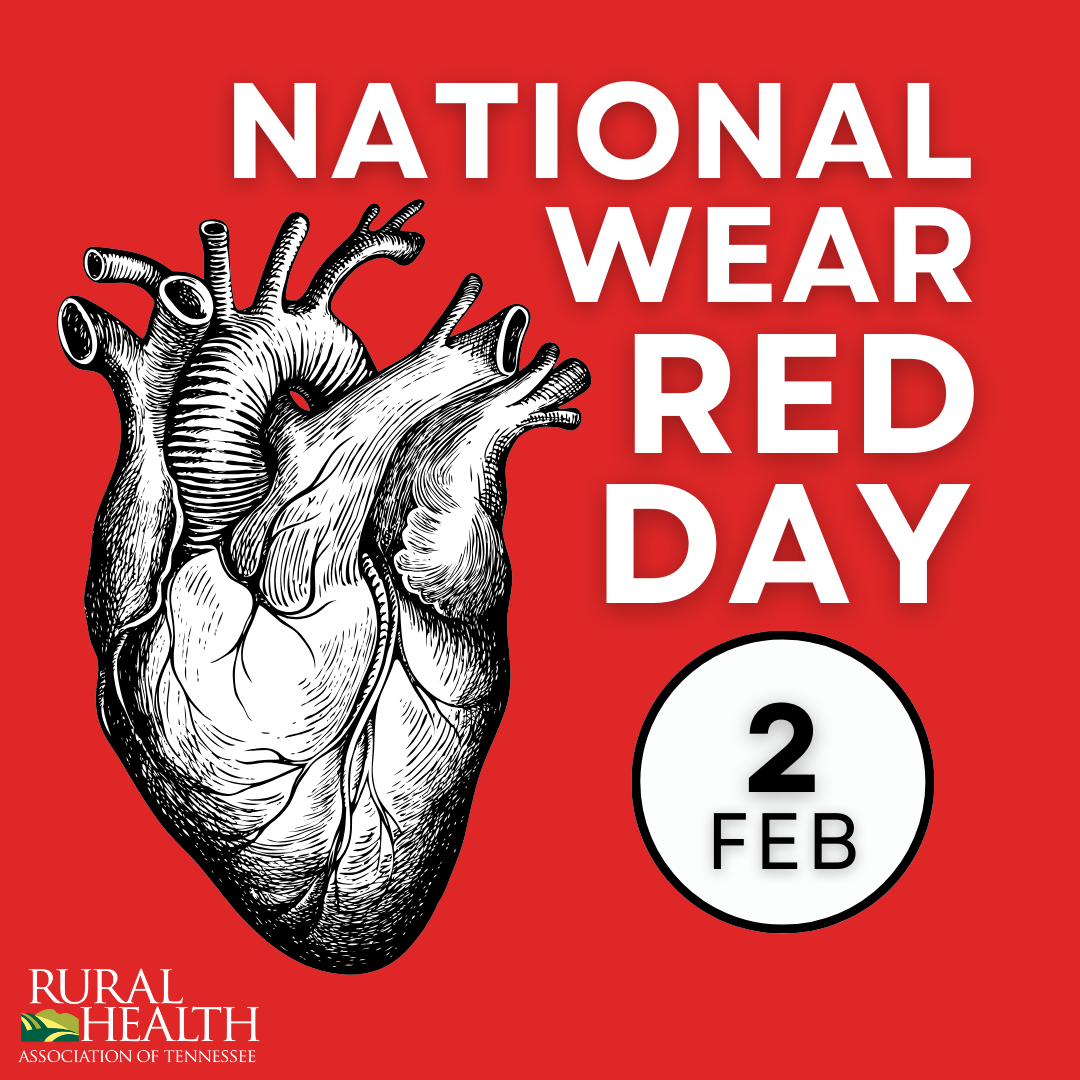 February is recognized as American Heart Month, a dedicated period to raise awareness about heart health and encourage individuals to adopt heart-healthy lifestyles. Cardiovascular diseases remain a leading cause of death globally, and American Heart Month serves as an important opportunity to educate the public about the risk factors associated with heart disease and the preventive measures that can be taken. During this month, various organizations, healthcare professionals, and communities come together to promote heart health through events, campaigns, and educational initiatives.
February is recognized as American Heart Month, a dedicated period to raise awareness about heart health and encourage individuals to adopt heart-healthy lifestyles. Cardiovascular diseases remain a leading cause of death globally, and American Heart Month serves as an important opportunity to educate the public about the risk factors associated with heart disease and the preventive measures that can be taken. During this month, various organizations, healthcare professionals, and communities come together to promote heart health through events, campaigns, and educational initiatives. National Cancer Prevention Month, observed every February, is a crucial awareness initiative that underscores the significance of proactive measures in reducing the risk of cancer. This month serves as a platform to educate individuals about lifestyle choices, early detection, and regular screenings that can contribute to preventing various types of cancer. By promoting healthy behaviors such as maintaining a balanced diet, engaging in regular physical activity, avoiding tobacco and excessive alcohol consumption, individuals can significantly lower their risk of developing cancer.
National Cancer Prevention Month, observed every February, is a crucial awareness initiative that underscores the significance of proactive measures in reducing the risk of cancer. This month serves as a platform to educate individuals about lifestyle choices, early detection, and regular screenings that can contribute to preventing various types of cancer. By promoting healthy behaviors such as maintaining a balanced diet, engaging in regular physical activity, avoiding tobacco and excessive alcohol consumption, individuals can significantly lower their risk of developing cancer.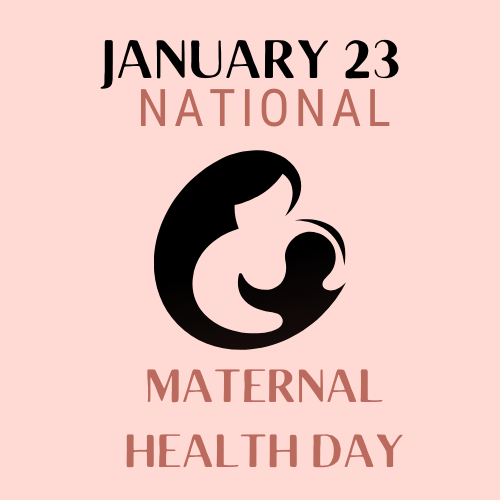 Maternal health is a critical aspect of overall well-being, and its significance is particularly pronounced in rural communities. In these areas, access to quality healthcare resources is often limited, posing unique challenges for pregnant women and new mothers. The lack of easily accessible healthcare facilities, skilled professionals, and educational programs can lead to delayed or inadequate prenatal care, increasing the risk of complications during pregnancy and childbirth. Addressing maternal health in rural communities is essential for ensuring the health and survival of both mothers and their newborns.
Maternal health is a critical aspect of overall well-being, and its significance is particularly pronounced in rural communities. In these areas, access to quality healthcare resources is often limited, posing unique challenges for pregnant women and new mothers. The lack of easily accessible healthcare facilities, skilled professionals, and educational programs can lead to delayed or inadequate prenatal care, increasing the risk of complications during pregnancy and childbirth. Addressing maternal health in rural communities is essential for ensuring the health and survival of both mothers and their newborns.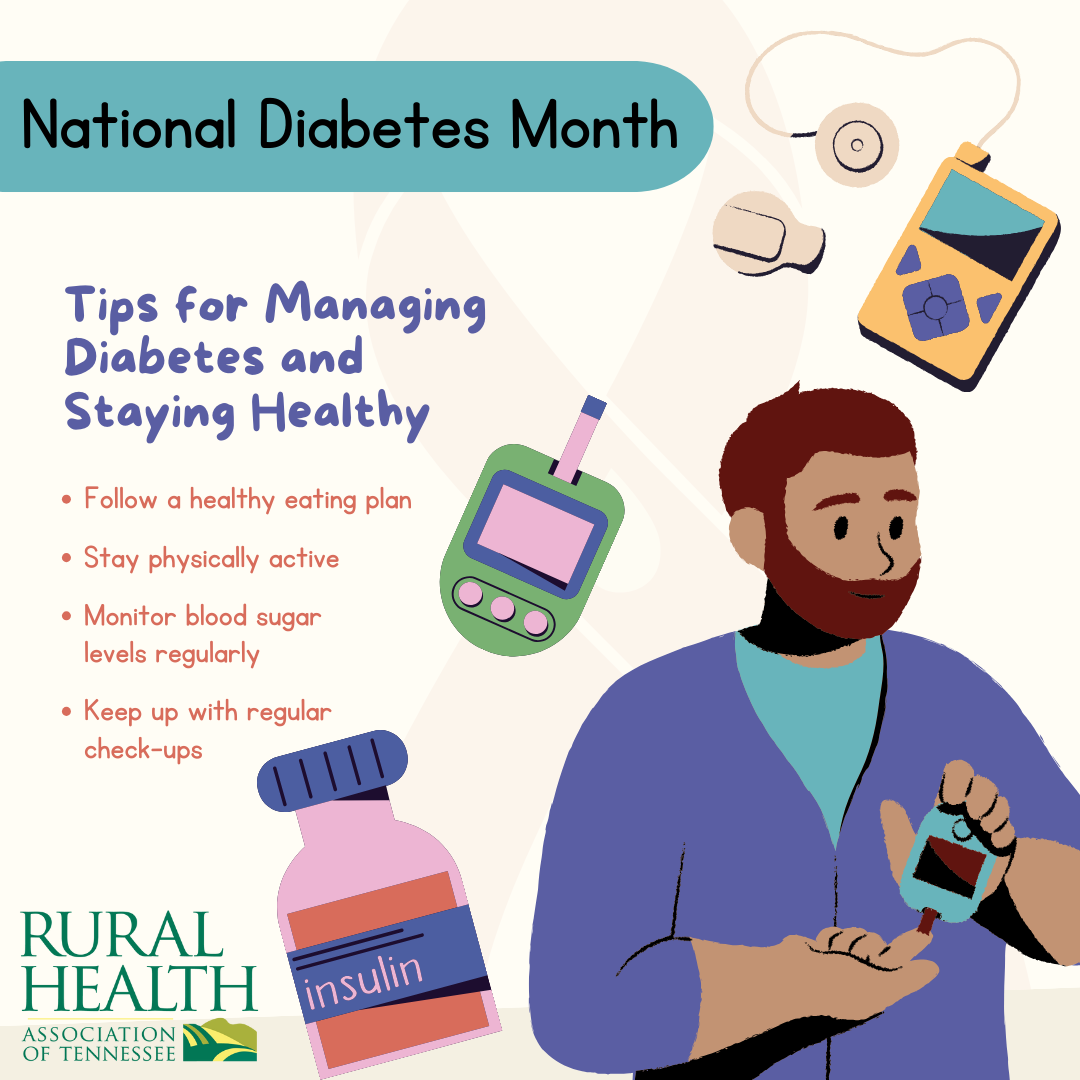 Diabetes presents a growing health challenge in rural areas, shedding light on the importance of increased awareness and targeted interventions. In many rural communities, limited access to healthcare facilities, lower socioeconomic status, and a lack of public awareness compound the difficulties of managing diabetes. Routine health check-ups are often scarce, making early detection and monitoring of diabetes less likely. Risk factors such as poor dietary choices and limited opportunities for physical activity in rural areas can contribute to the higher incidence of diabetes. It is crucial to raise awareness about diabetes in these regions to help individuals understand the disease, its risk factors, and the resources available for prevention and management.
Diabetes presents a growing health challenge in rural areas, shedding light on the importance of increased awareness and targeted interventions. In many rural communities, limited access to healthcare facilities, lower socioeconomic status, and a lack of public awareness compound the difficulties of managing diabetes. Routine health check-ups are often scarce, making early detection and monitoring of diabetes less likely. Risk factors such as poor dietary choices and limited opportunities for physical activity in rural areas can contribute to the higher incidence of diabetes. It is crucial to raise awareness about diabetes in these regions to help individuals understand the disease, its risk factors, and the resources available for prevention and management.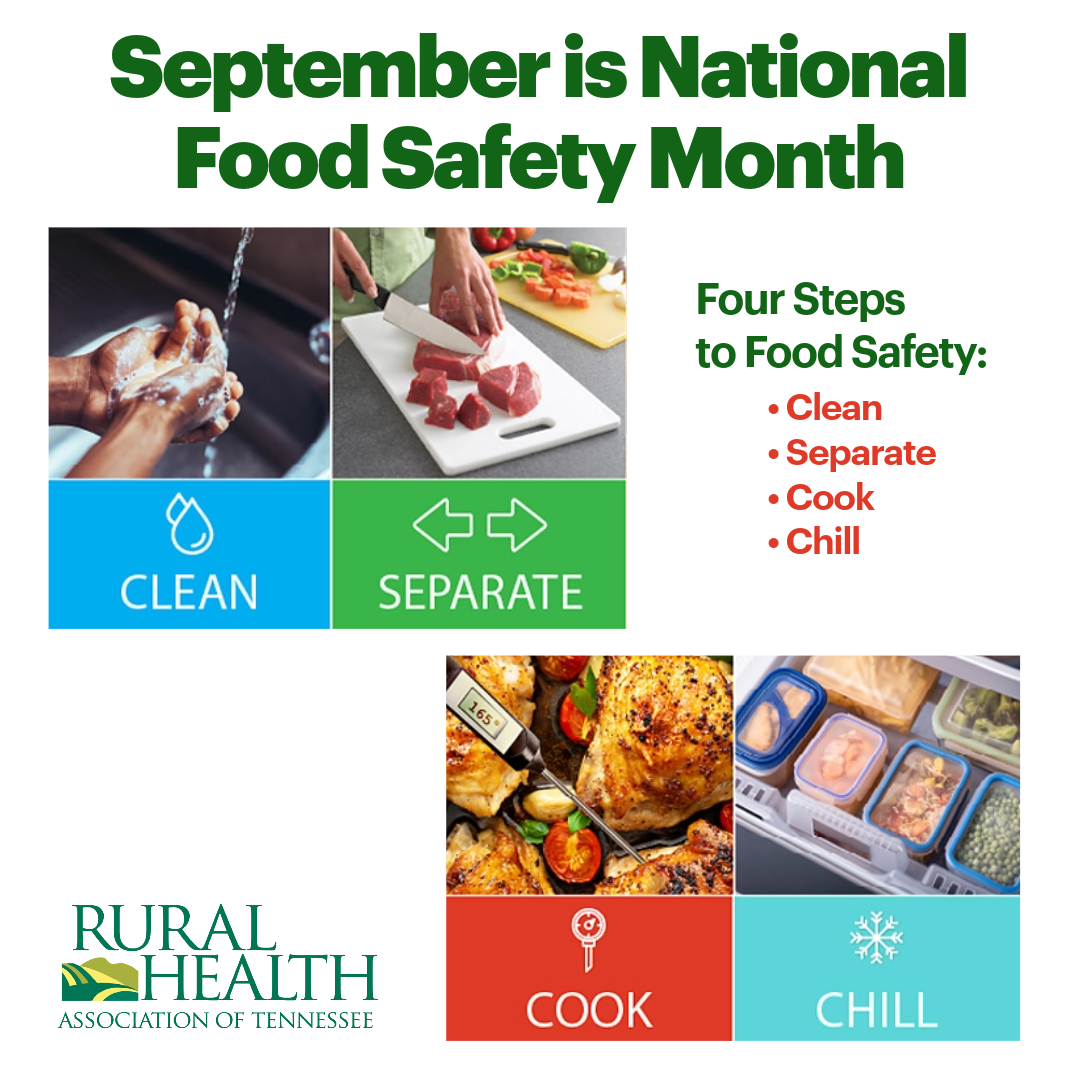 According to the Centers for Disease Control and Prevention, every year, an estimated 1 in 6 people in the United States (or 48 million people) get sick, 128,000 are hospitalized, and 3,000 die from eating contaminated food.
According to the Centers for Disease Control and Prevention, every year, an estimated 1 in 6 people in the United States (or 48 million people) get sick, 128,000 are hospitalized, and 3,000 die from eating contaminated food.
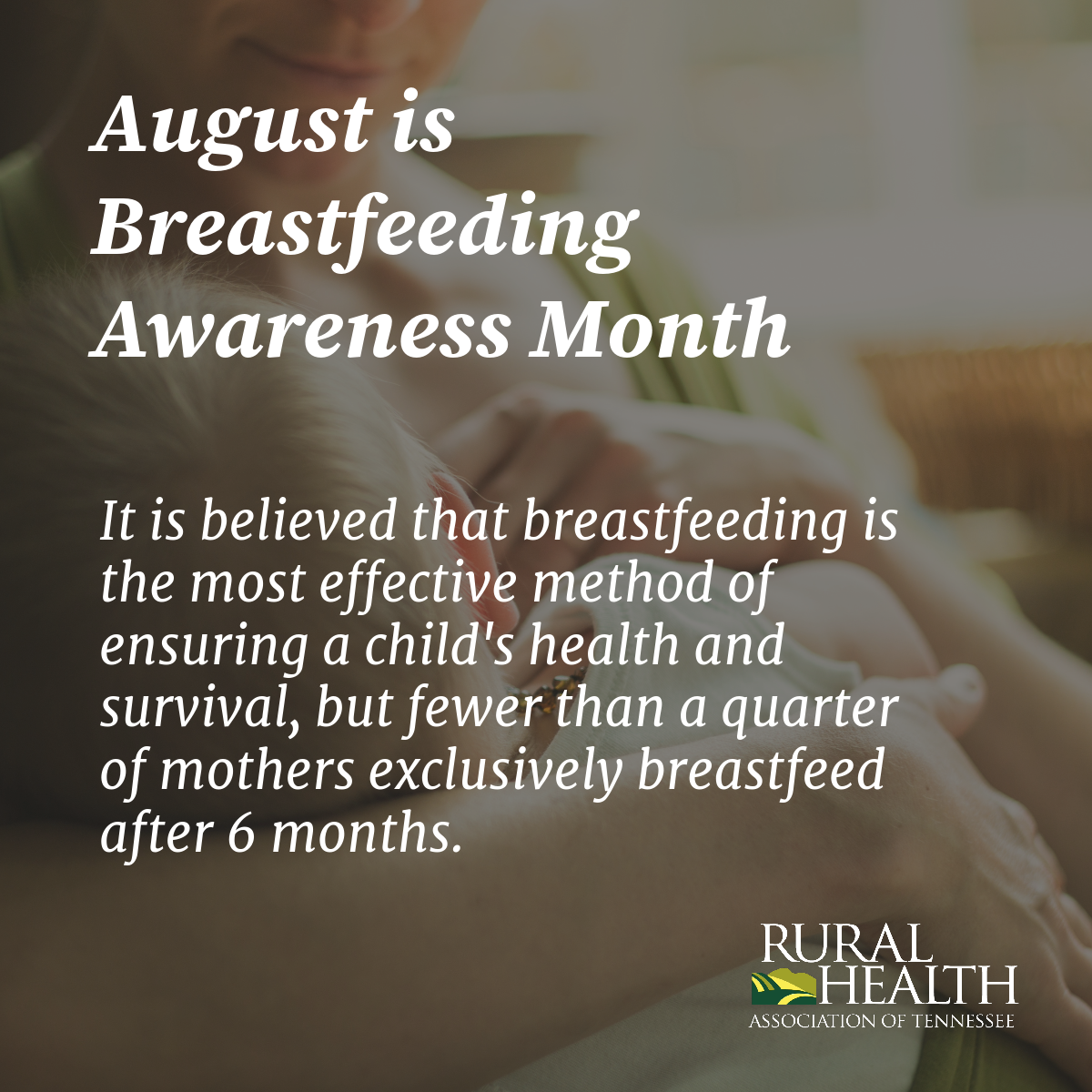
 In order to achieve health equity, access barriers need to be removed and high quality, need-based resources allocated. Health equity promotion is the aspirational guarantee of optimal health for all.
In order to achieve health equity, access barriers need to be removed and high quality, need-based resources allocated. Health equity promotion is the aspirational guarantee of optimal health for all. Tennessee's Rural Health Care Task Force, formed in June 2022 by Governor Bill Lee, has released a number of recommendations aimed at improving access to care and health outcomes for rural Tennesseans. In the report are recommendations to increase access to care, train healthcare professionals, and address social drivers of health.
Tennessee's Rural Health Care Task Force, formed in June 2022 by Governor Bill Lee, has released a number of recommendations aimed at improving access to care and health outcomes for rural Tennesseans. In the report are recommendations to increase access to care, train healthcare professionals, and address social drivers of health.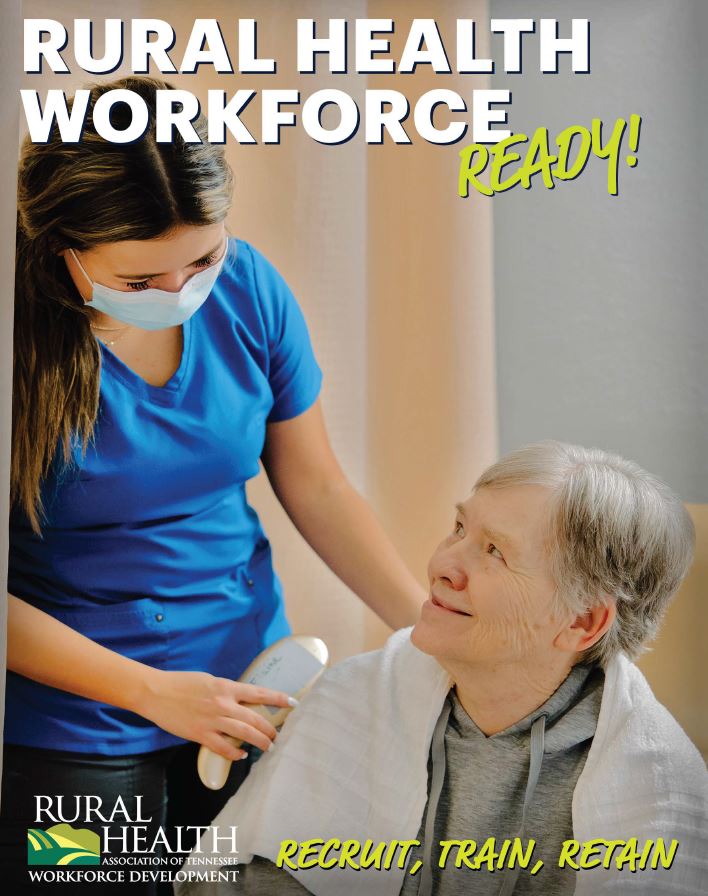 from their pilot workforce development program aimed at addressing the state’s workforce shortages.
from their pilot workforce development program aimed at addressing the state’s workforce shortages.